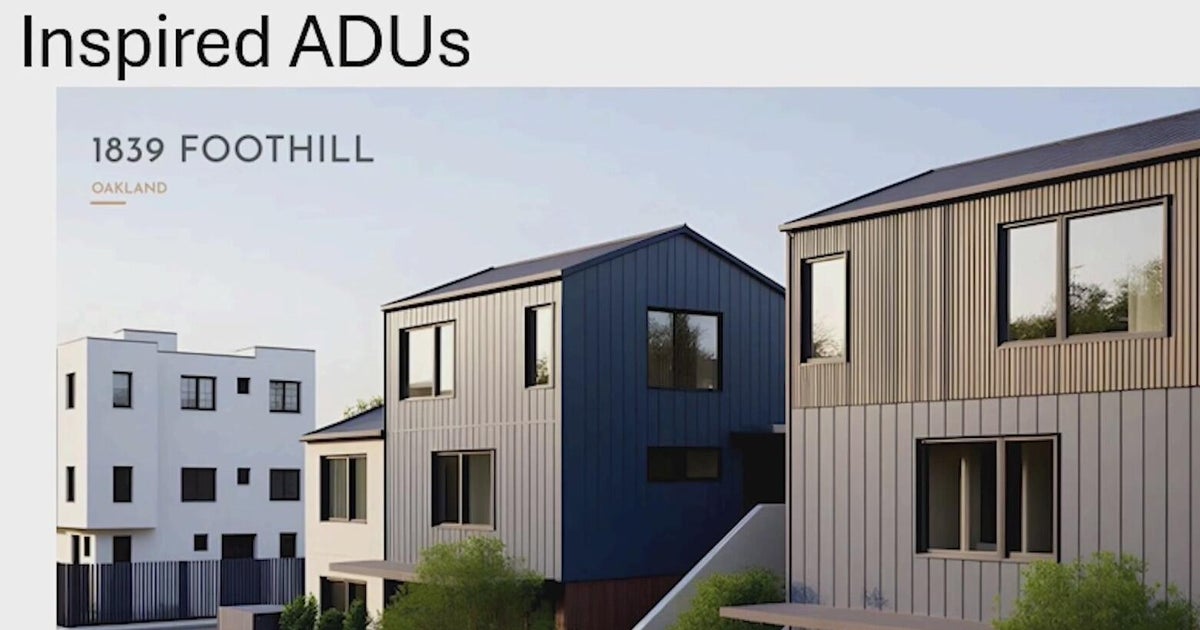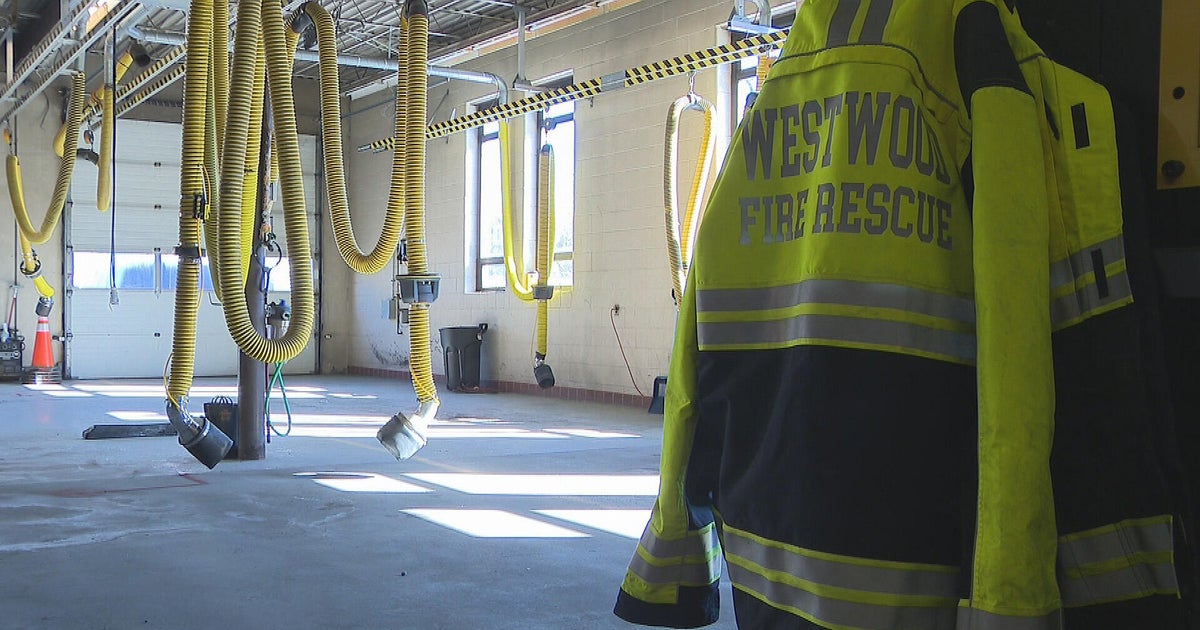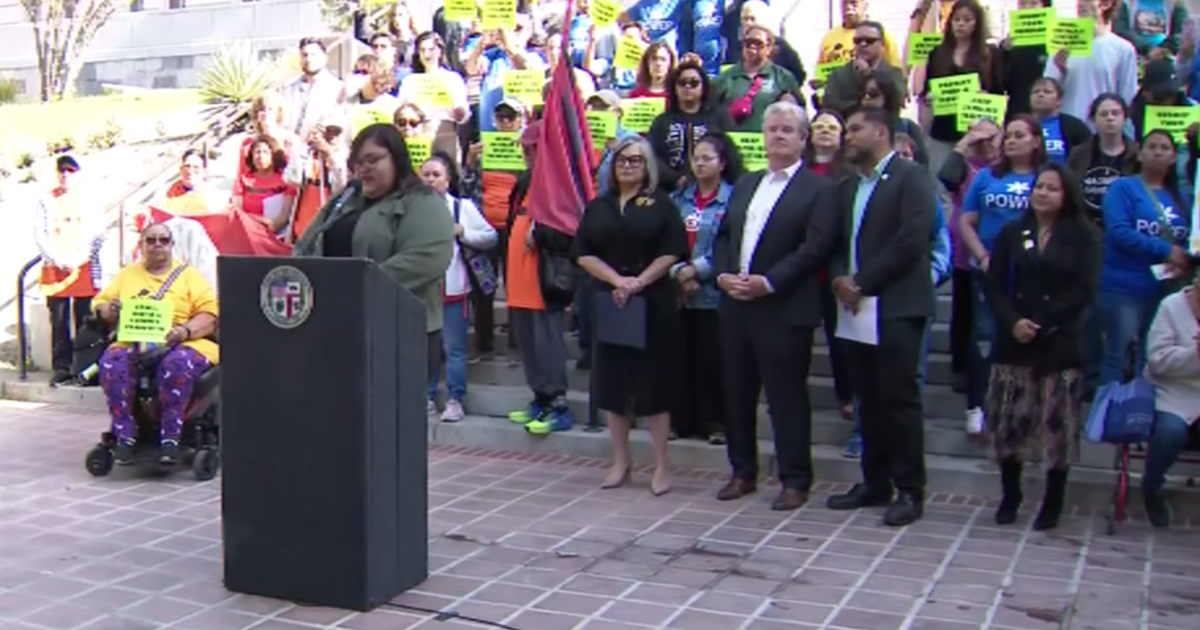'Oh My God This Is Gross': How Low-Income Housing Inspections Fail To Protect Coloradans
DENVER (CBS4) – Toxic mold, pest infestations, and electrical hazards are just a few of the problems discovered in Denver's taxpayer-subsidized apartments, according to a CBS4 Investigates analysis of federal housing inspection records. But despite unsafe conditions noted by inspectors, many apartments continue to pass inspections and receive public dollars to house low-income families.
CBS4 Investigates also found also found some Section 8 complexes in Denver have repeated the same violations several years in a row, and many apartments that have failed inspections were not fined for exposing low-income families to dangerous conditions in the home.
- Related Coverage: CBS4 Investigation Finds Dangerous Radon Levels In Public Housing
Scroll to the bottom of this page to see if your multifamily apartment complex received an inspection score below 80 in the last five years, and read its most recent inspection report.
Crunching The Data: What Inspections Found In Denver's Section 8 Apartments
The lowest-scoring apartment complex offering Section 8 multifamily housing in Denver last year was the Cherry Creek Greens, which failed its U.S. Department of Housing and Urban Development, or HUD, inspection the last two years in a row.
In 2019, the Cherry Creek Greens Received a score of 35 out of 100, with 61 health and safety deficiencies. Those deficiencies included a roach infestation, broken smoke detectors, and hazardous mold growth.
Tonya Rochau lived at the Cherry Creek Greens until the end of May 2019. She recalls the roach infestation as a serious problem, explaining the bugs colonized in the walls of her bathroom.
"If you went in there in the middle of the night, they would scatter," Rochau said. "I was like, 'oh my God, this is gross.'"
Despite the consistent failing grades, the Cherry Creek Greens has not been fined for its issues, and it is still up and running, offering housing to both Section 8 qualifiers and families paying full market price, like Rochau and her boyfriend.
Showed the inspection scores, Rochau said, "I'm not surprised, I could see why to be honest."
While Rochau said she was glad to be able to move out, she said she felt awful for the low-income families living on Section 8 who can't afford to move from the unsafe conditions.
"They don't deserve that," Rochau said.
CBS4 Investigates attempted to reach the Cherry Creek Greens for comment several times, but still has not received a response.
The Cherry Creek Greens is one of more than 100 complexes in the city that offers multifamily Section 8 housing.
CBS4 Investigates obtained inspection reports for the 49 lowest-scoring complexes in Denver. Over the last five years, inspectors found 25 of those complexes had electrical hazards, 17 complexes had toxic mold, 11 had a pest infestation, and 13 had windows that wouldn't lock.
At the Hilltop Apartments, in 2019, inspectors observed 31 health and safety deficiencies, projecting that if all of the units at the complex had been inspected, 111 deficiencies would have been found. In half of the units inspected, damaged doors and unlockable windows were found. In one of the units, the refrigerator was "inoperable," and in another, inspectors found a rat infestation. The facility still received a passing grade of 60 out of 100.
The Hilltop Apartments did not respond to requests for comment.
When complexes receive bad marks, they're only required to submit proof the problems have been fixed, there's no follow-up inspection until at least a year later, according to HUD.
However, effective Feb. 3, HUD said it will begin conducting Quality Assurance Inspections, or QAI, which will be a re-inspection of a property that was recently inspected. These "re-inspections" will take place within "two to five business days" after the initial inspection to "asses the inspector's performance using the same inspection protocol and same unit sample."
Affordable Housing Units Also A Concern
These are also some of the concerns in affordable housing, which uses the same uniform physical inspection standards, created by HUD, that are used for Section 8 housing.
The Garden Court at Yale Station apartments received $1.1 million in public tax credits before it opened in 2016.
But one of its residents, who asked for her identity to be concealed and to only be called Sophia, for fear of retaliation in future housing applications, says toxic mold growing in the building turned her life upside down.
As someone allergic to mold, Sophia said she now suffers from encephalopathy after being exposed to mold in her apartment in 2018.
"When I'm exposed to these toxins, my brain does swell and it causes, cognition issues, memory issues," Sophia explained.
The complex moved her to a different unit, but Sophia said she had the air tested in her new unit in 2019, and mold was still detected. She said she tried to notify management about her concerns several times, but was ignored. Living on a tight income, Sophia said it's difficult for her to move out.
To this day, Sophia says her symptoms continue to persist.
"So then one day I couldn't remember my name, and then one day I didn't know who I was," Sophia explained.
However, as a result of this CBS4 Investigation, the manager of Garden Court said staff will not only inspect and test Sophia's unit for mold, they will also test the entire building for mold, and all of the apartment buildings they own around the city. Garden Court also said it will immediately mitigate any mold hazards that are discovered, and will pay for any hotel costs of relocating Sophia while that mitigation occurs.
The manager of Garden Court said the air test staff conducted last week in Sophia's apartment found no mold content in Sophia's unit, except in the kitchen. The manager said staff tested surfaces, walls, and cabinets in the kitchen and "there was no finding in the physical test."
"We also tested the next door unit, and it also came negative," the manager said. "The testing company believes that the initial positive air testing result must be coming from some of (Sophia's) personal property."
Sophia said a growing water damage mark in the ceiling of her bedroom has her concerned. The building's manager said he would be willing to pay for Sophia to stay in a hotel while his maintenance staff further investigate the cause of that mark.
The Colorado Housing and Finance Authority, which administers the federal tax credits Garden Court received, said Garden Court was last inspected in September 2017 and was found to be in compliance. CHFA also said Garden Court is due to be inspected again this year.
HUD's Response To Inspection Standards Criticism
HUD declined an on-camera interview, but said in a written statement to CBS4 Investigates it is "committed to the health and safety of the residents who reside in our rental properties across the Denver area and across the country," and it is "undergoing a wholesale reexamination of its inspection policy and protocols."
In a Government Accountability Office report released in 2019, HUD agreed with the office that its inspections have "weaknesses" and blamed "inadequate resources" as a reason why.
As a means to address those weaknesses, HUD is proposing the new National Standards for the Physical Inspection of Real Estate, or NSPIRE.
In a written statement, HUD said NSPIRE is meant to "prioritize health and safety issues," and will "focus on function and operability over condition and appearance."
HUD said the old standards have allowed for a degree of complacency among some property managers, who have "invested more resources into passing minimal inspection requirements rather than satisfying their obligation to provide quality housing."
Several notable organizations have submitted public comments to HUD to improve upon the NSPIRE proposal.
For example, members of the Urban Entomology Initiative of the Medical, Urban, and Veterinary Entomology Section of the Entomological Society of America, wrote to HUD that the new NSPIRE standards "do not adequately penalize pest infestations" and will likely "discourage the use of (pest) monitoring devices" which are important to properly mitigate pests in the home.
But, some groups were concerned about the strain NSPIRE could put on local housing authorities responsible for enforcing those regulations.
Sunia Zaterman, the Executive Director of the Council of Large Public Housing Authorities, wrote to HUD saying the NSPIRE list of health and safety deficiencies are "too vague."
"While nuisances to residents, Public Housing Authorities should be allowed adequate time to correct issues such as clogged sinks, which do not represent an imminent threat to health and safety," Zaterman wrote in her public comment.
Below is HUD's full statement on its inspection process:
"HUD is committed to the health and safety of the residents who reside in our rental properties across the Denver area and across the country.
HUD's Real Estate Assessment Center (REAC) was established in 1997 to evaluate the physical conditions of public and multifamily housing properties. REAC developed Uniform Physical Condition Standards (UPCS) to determine whether a HUD assisted property is decent, safe, sanitary, and in good repair. Inspectors, typically contractors, evaluate the property, building exterior, building systems, common areas, and tenants' individual units. REAC's physical scoring system rates properties on a 100-point scale. Points are deducted for deficiencies.
An inspection report is released, the score for which determines the next inspection. Generally:
-Properties scoring 90 or higher are inspected every 3rd year
-Properties scoring 80-89 are inspected every 2nd year
-Properties scoring less than 80 are inspected every year
When deficiencies are noted, they are classified according to severity (1-3 scale) and whether they are life threatening aka Exigent Health and Safety (EH&S) or non-life threatening.
The relevant HUD field office or contract administrator will be notified within a day of any EH&S deficiency and the owner is required to repair the EH&S immediately and certify that repairs were made within 3 business days of the inspection date. Certification and documentation of the repair are required.
Properties scoring less than 30 are referred to the Departmental Enforcement Center (DEC). While we try to work cooperatively with our partners, the DEC has various enforcement tools to utilize against non-compliant owners. The Department may require a management agent change, abate or terminate assistance contracts, suspend or debar owners and agents from Government business, impose civil penalties, pursue damages, or even foreclose on properties.
It is important to note that terminating a contact means losing crucial affordable housing for the community, so HUD's top priority is working with the owners as much as possible to remedy the issues identified in the inspection.
HUD is undergoing a wholesale reexamination of its inspection policy and protocols. Under REAC's new system, inspections will focus on the resident's living space/unit, rather than aesthetics. HUD is also streamlining and reducing inspection complexity. The new National Standards for the Physical Inspection of Real Estate (NSPIRE) rebalances the scoring criteria to prioritize health and safety issues, especially within housing units. We will also focus on function and operability over condition and appearance.
Currently NSPIRE is in a beta testing mode which permits REAC to tailor a program that will result in best practices to foster a new, simplified and modern program to better identify substandard properties."
Our regional staff works as hard as they can with the current system to make sure issues at all properties are addressed, assuring health and safety of the families and individuals who call those properties home."
While NSPIRE is still in beta testing, residents continue to hope for positive change.
"Somebody needs to step in," Sophia said, "somebody well within the state system, and just say this isn't okay, and take notice and take the time."
See Your Apartment's Inspection Report
Here are the latest inspection reports for the multifamily Section 8 complexes in Denver that have received an inspection score below 80 in the last five years. Click the name of the apartment complex to read the full inspection report and see the score it received in its most recent inspection:
• 4th Quarter
• 17th Street Redevelopment
• 1135 Broadway Residences
• 1520 S. Albion
• 1899 Gaylord
• Allen Gardens
• Argyle Park Square
• California Park East
• Capitol Hill
• Cherry Creek Greens
• City Park Manor
• City Park Residences
• Clare Gardens
• Clermont Park aka Christian Living Community
• Coleman Manor
• Community Options of Denver
• Congress Park Commons
• Cottage Hill
• Curtis Park II
• Goldsmith Village Syracuse Plaza
• Guadalupe Senior Housing
• Highland Crossing Square Apartments
• Hilltop Apartment
• Jefferson Square
• La Alma Family (Lipan St)
• La Alma Family Homes (9th Avenue)
• Liggins Tower
• Lowell Terrace
• Marian Plaza
• Osito Ridge Family Apartments
• Park East House
• Park Hill Residences
• Redi Corp III
• Sable Ridge
• Sheridan Glen Housing
• Shorter Arms
• South Oneida Club Apartments
• Sunset Towers
• The Forum Apartments
• Timberline
• University Hills Senior Residences
• Whittier
• William Tell Apartments
• Wise Harris Arms













